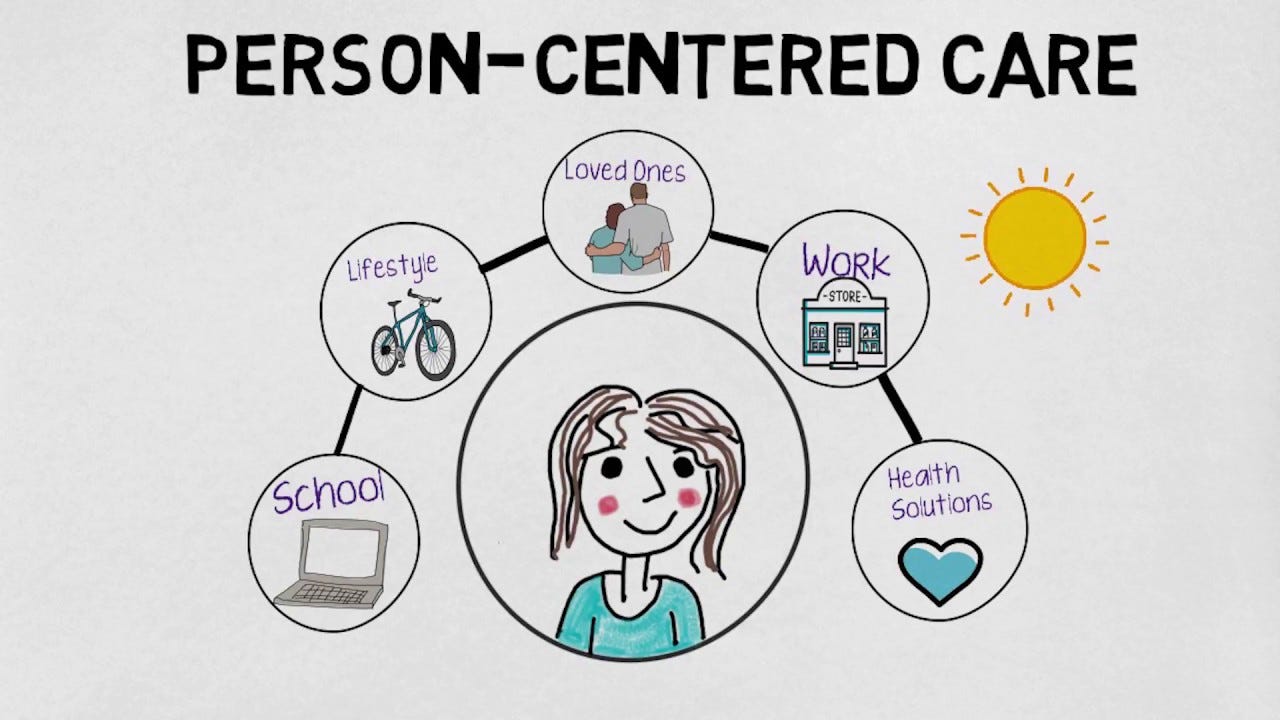Insights
Thoughts, affirmations, and messages of encouragement; our counselors share insights into the many elements that combine to make a "whole and healthy you."
Person-Centered Counseling

Person-centered counseling, also known as Rogerian therapy or client-centered therapy, is a therapeutic approach developed by Carl Rogers, a prominent figure in humanistic psychology. This approach emphasizes the individual's inherent capacity for self-healing and personal growth, focusing on the client's perspective and experiences rather than the therapist's interpretations or diagnoses. In this blog, we'll explore what person-centered counseling is, its benefits, and who can benefit most from this approach.
What is Person-Centered Counseling?
Person-centered counseling is grounded in the belief that individuals are the best experts on themselves. It operates on the principle that people are inherently good and possess the free will, autonomy, and potential to steer their lives toward growth and fulfillment. The therapy is non-directive, meaning the therapist does not lead the session but rather supports the client in exploring and understanding their own thoughts, feelings, and behaviors123.
Key concepts of person-centered therapy include unconditional positive regard, empathy, and congruence. Unconditional positive regard involves the therapist offering acceptance and support to the client without judgment. Empathy requires the therapist to deeply understand the client's experiences from their perspective. Congruence refers to the therapist's genuineness and authenticity in the therapeutic relationship12.
Benefits of Person-Centered Counseling
Person-centered counseling offers numerous benefits, including:
- Developing Healthy Self-Esteem and Confidence: By focusing on the client's perspective, this approach helps individuals build a stronger sense of self and confidence in their abilities1.
- Improving Emotional Regulation: Clients learn to understand and manage their emotions more effectively1.
- Strengthening Self-Identity and Authenticity: The therapy encourages individuals to explore their true selves and embrace their uniqueness1.
- Creating Healthier Relationships: By fostering self-awareness and empathy, clients can improve their interpersonal relationships1.
- Reducing Stress: The supportive and non-judgmental environment helps alleviate stress and anxiety1.
- Embracing Change: Clients learn to view change as an opportunity for growth rather than a source of fear1.
Who Can Benefit from Person-Centered Counseling?
Person-centered counseling is versatile and can be beneficial for a wide range of individuals. It is particularly effective for those:
- Seeking Personal Growth: Individuals looking to explore their potential and achieve self-actualization find this approach empowering12.
- Experiencing Depression: Research has shown that person-centered therapy can be effective in treating depression, helping individuals explore underlying causes and develop coping strategies3.
- Struggling with Self-Esteem Issues: The focus on unconditional positive regard and empathy can significantly boost self-esteem and self-acceptance1.
- Facing Life Transitions: Those undergoing significant life changes may benefit from the supportive and non-directive nature of this therapy1.
- Desiring a Non-Pathologizing Approach: Individuals who prefer not to be labeled or treated as "patients" find the client-centered terminology and approach more appealing1.
In conclusion, person-centered counseling offers a compassionate, empathetic, and empowering approach to therapy that places the individual's experiences and perspectives at the forefront. Its emphasis on self-directed growth and the therapeutic relationship's quality makes it a valuable option for anyone seeking to overcome challenges, enhance their well-being, and achieve personal growth. Whether you're dealing with depression, seeking personal development, or navigating life's transitions, person-centered counseling can provide the supportive environment needed to explore your potential and make meaningful changes in your life.
